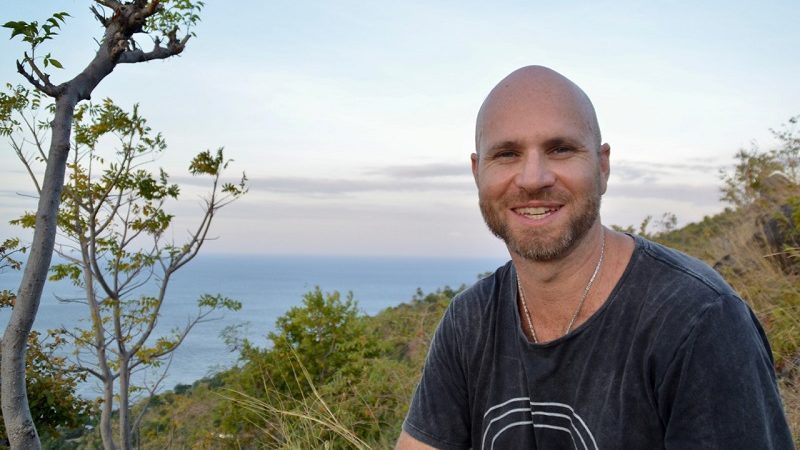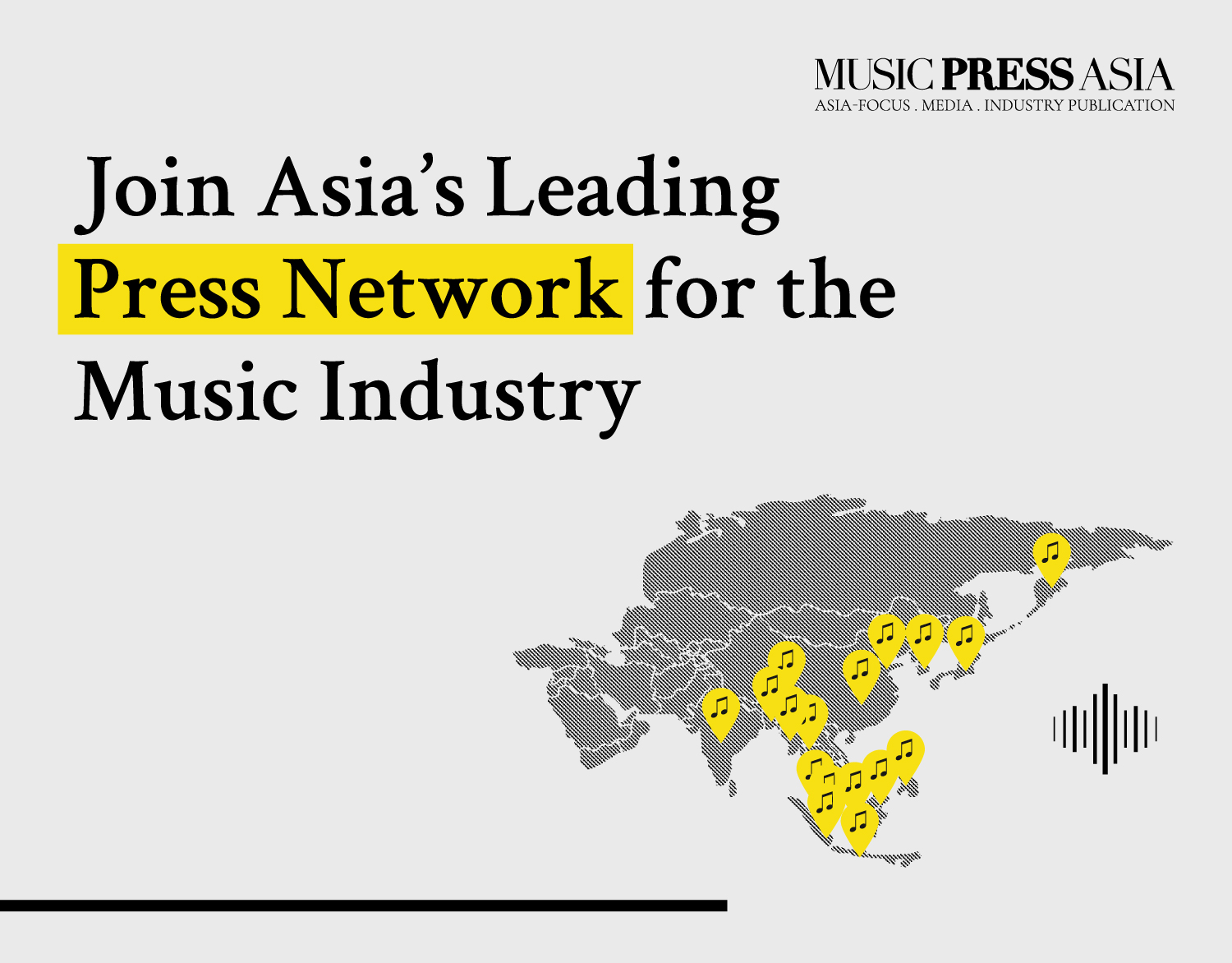Alex Joy: Rainforest Pavilion & Covid Life in Bali
In 2018, two deejays from Joy Collective — Halim Ardie and Alex Joy went into the northern rainforests of Sumatra with the aim to compile sound and imagery for the next Rainforest Pavilion at Wonderfuit — as part of a pressing effort to promote love for the environment, especially the rainforest. Music Press Asia’s Head of Editorial, Monica Tong, speaks with DJ and climate activist Alex Joy about Covid-19; its affects on the dj and gig scene, growing up in Canada, Bali’s mysticism, creating music, and finally, efforts focused on helping others cope the pandemic.
In 2018, two deejays from Joy Collective — Halim Ardie and Alex Joy went into the northern rainforests of Sumatra with the aim to compile sound and imagery for the next Rainforest Pavilion at Wonderfuit — as part of a pressing effort to promote love for the environment, especially the rainforest. Music Press Asia’s Head of Editorial, Monica Tong, speaks with DJ and climate activist Alex Joy about Covid-19; its affects on the dj and gig scene, growing up in Canada, Bali’s mysticism, creating music, and finally, efforts focused on helping others cope the pandemic.

Alex Joy: Interview with Music Press Asia.
Q1. Tell us about what got you excited or impacted you the most to start such a group such as Joy Collective? How did it all began? And how has the collective evolved since?
Joy Collective started as an idea to bridge different communities together for a common good. I have been fortunate in life to have made friends in many different sectors, from Business, Arts, Music, Science, Environmentalism, Social Activism, Psychology and Philosophy.
Most people I’ve found these days aspire to do some environmental or social good in the world, the problem is how? Many people aspire to do good but end up causing harm in the process – for example, the biggest initial drive for palm oil leading to massive spike in deforestation of South East Asian rainforests was for the demand for bio fuel in Europe.
People wanted biofuel to lower emissions to help the planet by doing something they thought would fight climate change. Turns out that this was fatally flawed because not only did litre for litre biofuel extracted from palm oil grown in cleared rainforests shipped around the world cause no reduction of emissions, it also harmed a huge amount of Earth’s oldest terrestrial eco systems, South East Asia’s Rainforests.
The problem wasn’t looked at holistically, and thus caused more harm then if Europeans continued to just use traditional fossil fuels. This is just one example of many. So Joy Collective’s original aspiration was to provide a bridge between different groups and also a vetting process of what is supported so that we are able to maximize positive impact.
Rainforest Pavilion became our first big project and has taken center stage for the time being. Halim Ardie came in at this point with full support. After first attending the Wonderfruit and reading about their ethos, I felt driven to add something.
“The problem wasn’t looked at holistically, and thus caused more harm then if Europeans continued to just use traditional fossil fuels.”
The concept of Rainforest Pavilion came to me. The original concept was to bring together different NGOs working on Rainforest Issues together in a very informal setting, a festival, to inspire deeper collaboration and inspiration. On top of this profits earned from sales at the pavilion would go towards procuring rainforest land for conservation. This is the kind of triple win scenario we aim to embody. Our lofty life time goal is to protect 5 million hectares of forests. The format: by day having workshops and talks, and by night having late night dance parties, showcasing South East Asia’s top electronic music talent.
All inside the Rainforest Pavilion that was a Rainforest inspired art installation with lush plants, striking photographic images and soundscapes recorded in the Sumatran Rainforest. Fortunately the festival curator Jason Swamy was a friend of a couple years at that time and I made the proposal to him and he got it into the hands of head honcho Pranitan Pete Phornprapha. We received positive feedback and were given the go ahead. That is how it came to be.
Read more interviews published at Music Press Asia here.
Q2. How has it changed in 4 years?
Quite a lot, we focus less on unifying NGOs now. Although we still act as a network and amplifier for those who want to contribute. We have made two expeditions to the Sumatran Rainforest — the latest one in early March with Jen Li Halim and myself to collect sounds and imagery we use for the pavilion and to identify land we could acquire as part of our campaign.
We have recently started working with BOS foundation to help them fundraise to get through Covid times. We are focusing more on the music side now. We have through Rainforest Trust and Cuipo saved 407 hectares of land, but have now shifted focus to acquiring land through our own networks instead of working with other organizations.
The main reason for acquiring it ourselves is we want to go there and be on it, with other originations this was hard. To date, we have identified several patches we’d like to purchase from the rightful owners, but we haven’t been able to acquire the money. Revenue wise we have yet to have major success, but we are rich with community. The people I have met and the artists who support us have made the whole journey worthwhile!
Q3. How did growing up in Canada, shape or influence you today as a DJ?
DJ culture was very strong in the late 90’s and early 2000’s when I was getting into DJing. It was a really exciting time as raves we happening almost every weekend in Industrial spaces. During the early days of internet and pre-social media, in order to be social one had to go out! Promoting was by physical means, posters, flyers, radio etc. [And] events were often illegal and underground.
To be a DJ one had to buy and collect records, go to record stores and lug heavy cases around. I used to spend all my money on records. I guess that shaped me in that I am kind of old school in my mixing technique as a dj, I treat my usbs like record bags, I get liked tracks together but rarely plan entire sets, I don’t use sync or my laptop. In production too I much prefer to use hardware then to work inside the box. It’s been along time since I’ve hit the street handing out flyers though.
“I feel it [Bali] part of my soul.”
Q4. Bali and Indonesia is known to the world for its rich spiritual resource and mysticism. How has this place inspired you?
Bali has absolutely shaped me a person. I feel it part of my soul, as I first came at 6 months old and have been coming back ever since. It is my second home. And throughout this whole Covid-19 crisis I’ve grown a deeper respect for Bali and the Balinese culture.
What you have in Bali, that is very rare in the world, is an indigenous culture that has existed for thousands of years into the modern age and maintains control of their homeland. This is a culture that is very mature in its organization and extremely resilient to threat.
I truly wasn’t sure what to expect when I made the decision to stay the course in Bali at the beginning of the Covid-19 pandemic despite stark warnings from the Canadian embassy to return home. What I witnessed was nothing short of amazing. When I saw reports even at the earliest threat of the Pandemic panic buying, violence breaking out over toilet paper hoarding, squabbling over mask wearing and etc in the West. I saw and sensed very little panic in Bali, I saw intensifying of agriculture, increasing of exercise and a massive proliferation of kite making, also a heightened production of the local brew Arak which has been touted as a Covid cure.
The underlying feeling was one of community cohesion and adaptation. The foreign community too stepped up to help and I myself became much closer with my Balinese counterparts. Helping financially where I could as many were suddenly out of work and needed sometime to adapt to a more local way of making a living as many have now.
The Kite season this year was truly remarkable, thousands upon thousands of kites dot the skies of Bali like never before and many are lit at night providing an effect in the skies that mirrored Burning Man’s Playa.
Local governments have supported kite making as a stress relieving activity that can be done safely at a distance. This is the thing about the Balinese, because they truly believe in there purpose as a people on earth it takes a lot to really phase them. And as part of their duties they commit acts of tremendous beauty every single day. One cannot help to be inspired living in this culture. I don’t want to say its perfect and without issue, they are human after all, but it is a tremendous culture full of magic, wonderment and joy and the world could learn a great deal from the Balinese.
Q5. Since March, the Covid-19 pandemic practically disintegrated the existing entertainment scene the world over. How has it affected you and the DJ/club scene in your city? What was the first remedial actions that you and your friends are taking to cope?
When Covid first hit, Indonesia was late to claim it was an issue. Events continued. At around the point the USA banned European travel, Indonesia and Bali started shutting down. Tourism ground to halt and music venues mostly closed. It’s been really hard and has required innovation to find ways to earn some income throughout this time. Online classes have been a way.
“Our lofty life time goal is to protect 5 million hectares of forests.”
Halim started the Bali Hospitality movement which has gotten our full support to help provide basic needs for those out of work in the hospitality business, many of whom working at the same venues we did. Aside for two days around Nyepi Balinese new year and silent day there was no lockdown in Bali, large gatherings were stopped and masks were mandatory, also hand wash stations were installed everywhere and negative tests required for domestic travel.
Now Bali is in a stage of reopening. International portals are still closed but domestic tourism is open. Small events are permitted and we have an unlimited access to amazing venues. You will see some of these venues showcased on whalebone.tv with Archipelago sessions coming soon.
As far as my daily routine, well it has become much more local. I wear a mask when going out. Cook almost all my own meals at home, which is healthy and cheaper! And have been working on music production with my fiancé in our duo “JoyLi”, a release coming soon in collaboration with the great Neil McLennan of Prodigy fame and many others. All in all I have been very blessed throughout this time.
My long term plans have not changed much, although wedding plans had to be postponed. As we are getting a clearer picture of Covid-19 I think that we will find ways to adapt and move forward from this point in history. I truly hope that we learn from this time and make our selves more efficient and more aware that we are one human species and that our boarders don’t define us.




